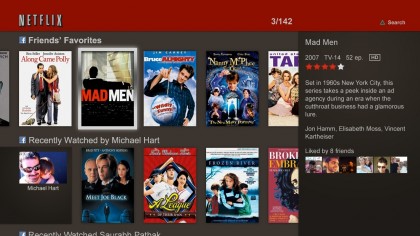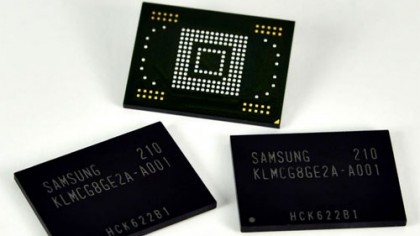Storage wars: do we really need microSD cards in our phones?
Maybe it's time to stop it with the cards
Up in the air
In the meantime there's at least one viable alternative to microSD cards and in many ways it's a far more attractive option. We're talking of course about cloud storage. After all why have your files stored on one device when you could access them from every device you own by uploading them to the cloud.

The pricing compares favourably to microSD cards too, with most providers giving a certain amount of storage away for free, right up to 50GB in the case of Mega. But even subscriptions don't have to break the bank. Box for example charges just £3.50 per month for 100GB of storage.
Cloud storage does have its limitations, as uploading large files can take a while and as Leedham points out "your phone won't always be connected to wireless internet, so internal storage is still important. The interesting thing will be whether apps continue to grow in size, just as flash storage does."
But it's increasingly rare to be without some form of internet connection on phones and with most major storage providers offering smartphone apps the whole process is normally very easy, while your data is safer than it could ever be on something as unreliable as a microSD card.
Streaming services are another alternative and while they're even more dependent on an internet connection they take storage out of the equation entirely.

With a Netflix subscription you have instant access to thousands of films, while Spotify gives you access to millions of songs, far more than could ever fit on even the biggest hard drives and you have access to them across all of your devices.
But if you're particularly attached to your own music collection or don't want to pay a subscription then there's always Google Play Music, which allows you to store up to 20,000 of your own songs in the cloud for free and stream them to your devices.
Sign up for breaking news, reviews, opinion, top tech deals, and more.
For cloud storage to truly match local storage there will need to be fast, free internet connectivity everywhere and we've not at all reached that point yet, but as the likes of 4G take off and Wi-Fi hotspots become more prevalent we're edging ever closer.
Indeed Rob Hodges from Mobiles.co.uk believes that phones will be heading even more towards cloud storage in the future, saying that "with all the leading operating systems moving towards cloud storage (Google Drive, SkyDrive, iCloud) content is going to be more off your phone, and more accessible from anywhere.
Cloud accounts can be quite generous for storage meaning you have plenty of space for your major content. Whether apps will have the functionality to be accessed remotely without using memory on your device is the next challenge, but it will be something smartphone manufacturers are trying to conquer."
Right now you can't store apps in the cloud or stream them, but then you're increasingly unable to move apps to microSD cards anyway, so that's not such a factor.
Separation anxiety
Even if the phone and apps you have do allow for it you might want to reconsider, as above and beyond the issues with microSD cards highlighted earlier there's also the fact that separating an app from OS features on the phones internal storage can cause problems of its own.
Hodges explains it like this: "Downloaded apps need access across a range of the pre-installed OS features. Even the little things like WhatsApp accessing your phone contacts list, or Skype accessing your camera. Building a partition between app memory and OS memory would only slow things down, meaning a more disruptive user experience."
MicroSD cards aren't all bad of course. Hodges argues that they're "great for your disposable media files such as music, movies and camera content. Definitely recommended as a way to access your library and can easily be taken out the phone and plugged into business/personal devices.
Should your phone break down, the microSD card is that sigh of relief that your valuable photos and multimedia are safe, easily accessible and can be uploaded to your computer via SD card adaptor or another smartphone."

On the way out
With phone storage increasing in size and cloud storage taking off, microSD cards are becoming increasingly unnecessary, but they've not been rendered totally obsolete just yet - and they seem to be on most top end phones now, although only to satisfy worries from consumers about topping out on storage limits.
Even Windows Phone handsets are starting to get on board with microSD slots at the lower end to augment poor storage... although we've yet to see it on the high price tag devices.
HTC has seen fit to include one in its latest flagship, explaining that "we heard the customer feedback over the past year asking for expandable storage. We want to provide the best experience possible in our flagship One, and microSD now offers more space and flexibility to use their phone exactly how they want with all the content they want."
It's clear then that a lot of consumers still place value in microSD cards. We'd wager that there's a silent majority that doesn't really use them but for anyone who wants local access to a lot of media or other large files they still serve a purpose.
The sooner that ceases to be the case, the better, given all the problems inherent in them, but until onboard storage breaks the 128GB barrier and comes down in price they're a necessary evil....or a godsend, depending on your perspective.
In any case a microSD card slot in a phone can hardly be seen as a bad thing, since it simply increases your options. But you might want to think twice about actually using it unless you really need to.
- Looking up to the cloud but not sure where to start? Check out our tips on making the most of free cloud storage.
James is a freelance phones, tablets and wearables writer and sub-editor at TechRadar. He has a love for everything ‘smart’, from watches to lights, and can often be found arguing with AI assistants or drowning in the latest apps. James also contributes to 3G.co.uk, 4G.co.uk and 5G.co.uk and has written for T3, Digital Camera World, Clarity Media and others, with work on the web, in print and on TV.